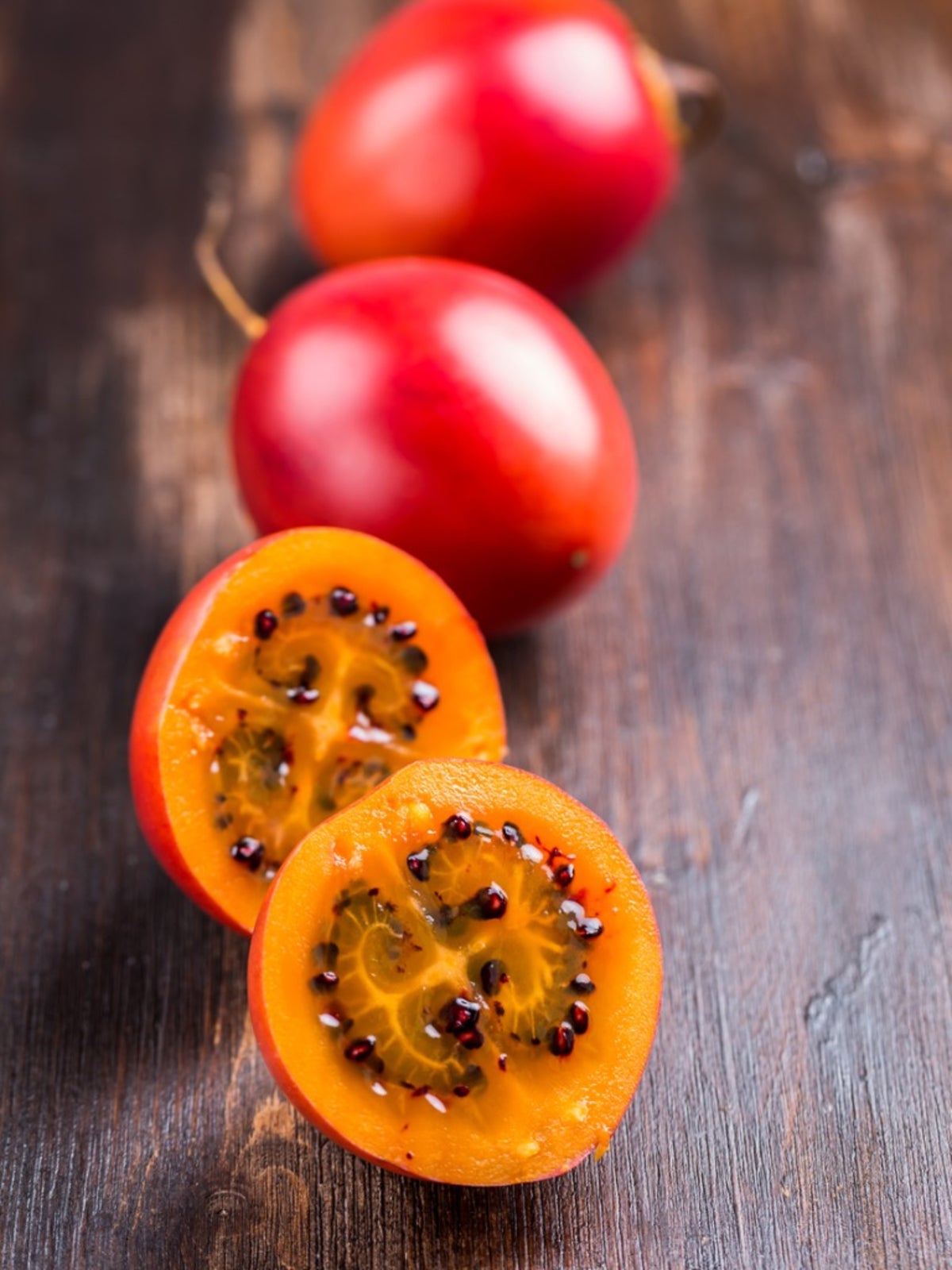Tree Tomato Tamarillo: How To Grow A Tamarillo Tomato Tree


If you're wanting to grow something a bit more exotic in the landscape, how about growing a tree tomato tamarillo. What are tree tomatoes? Keep reading to learn more about this interesting plant and how to grow a tamarillo tomato tree.
What are Tree Tomatoes?
Tree tomato tamarillo (Cyphomandra betacea) is a lesser-known plant in many regions but makes a very nice addition to the landscape. The South American native is a small-growing shrub or semi-woody tree reaching heights between 10 and 18 feet (3-5.5 m.). Tamarillo trees bloom in early spring, producing fragrant pink flowers. These blooms will eventually give way to small, oval or egg-shaped fruit, reminiscent of plum tomatoes—hence the tomato tree's name. While the fruits of growing tree tomatoes are edible and vary between trees, they are much more bitter tasting than your average tomato. The skin is also tougher, with colors varying among the different varieties from yellow to red or even purple. Unripened fruits are also slightly toxic and should only be harvested or eaten when fully ripe (indicated by the variety's color).
Growing Tree Tomatoes
Learning how to grow a tamarillo tomato tree is easy with the proper conditions. Tree tomatoes grow best in areas where the temperatures stay above 50 degrees F. (10 C.) but can tolerate temperatures as low as 28 degrees F. (-2 C.), though there will be some dieback. Even under the best conditions though, the average lifespan of a tree tomato is about four years. If you would like to grow a tree tomato in colder climates, you will want to keep it in a container so that it can be brought in for the winter. Tree tomatoes tolerate many soil conditions as long as it's well draining, though compost-enriched soil is preferable for optimal growth. The tree tomato tamarillo also needs placement in full sun, though in hotter climates it can be planted in areas with partial shade. Due to the shallow root system of these trees, adequate wind protection may also be necessary, such as near the house. While they can be propagated by seed, cuttings are preferable with seedlings planted once they reach about 5 inches (13 cm.) tall. Spacing of additional plants are 6 to 10 feet (2-3 m.) apart.
Tomato Tree Care
Growing tree tomatoes are cared for much the same as their tomato counterparts. As with tomato plants, part of your tomato tree care will include plenty of water (though not standing water). In fact, it is helpful to mulch around the tree to retain moisture levels. A balanced fertilizer should be applied quarterly with bone meal given at the time of planting. Annual pruning is often recommended for these trees to help keep them looking their best and maintaining their size in small gardens. Pruning can also help encourage branching in younger trees. Though they suffer little problems with adequate tomato tree care, tamarillo trees can occasionally become infested with aphids or fruit flies. Treating the trees with neem oil is a good way to take care of either of these pests. Powdery mildew is another issue that may pop up in trees where overcrowding or high humidity are factors. If you are planning on eating the fruits, you can harvest them once they have fully matured (usually 25 weeks following fruit set). Newly planted trees may take up to two years for fruit production to occur. While it's best to use the fruits right away, you can store them short term in the fridge for a couple weeks. Tree tomato tamarillo fruit is also best eaten with both the skin and seeds removed. They can then be added to salsa or made into jams and jelly.
Sign up for the Gardening Know How newsletter today and receive a free copy of our e-book "How to Grow Delicious Tomatoes".

Nikki Tilley has been gardening for nearly three decades. The former Senior Editor and Archivist of Gardening Know How, Nikki has also authored six gardening books.